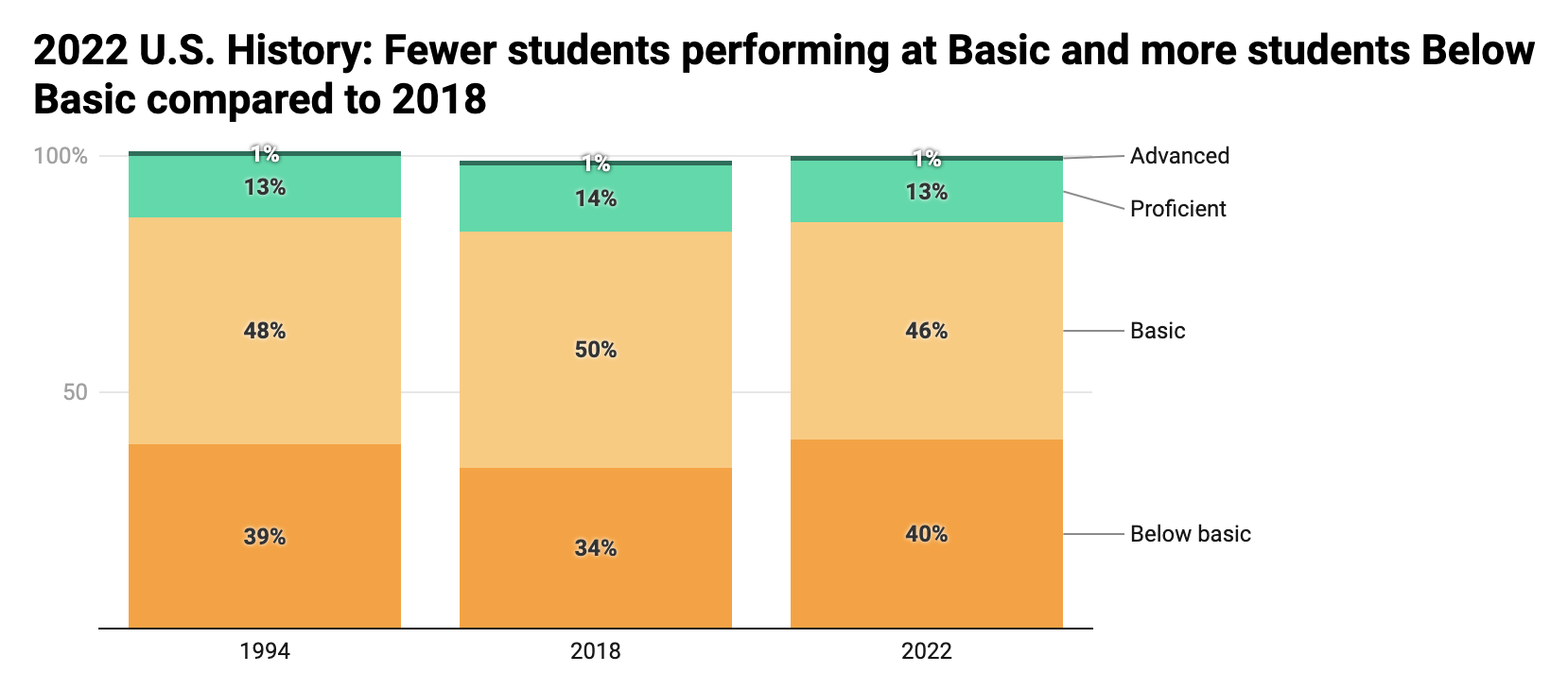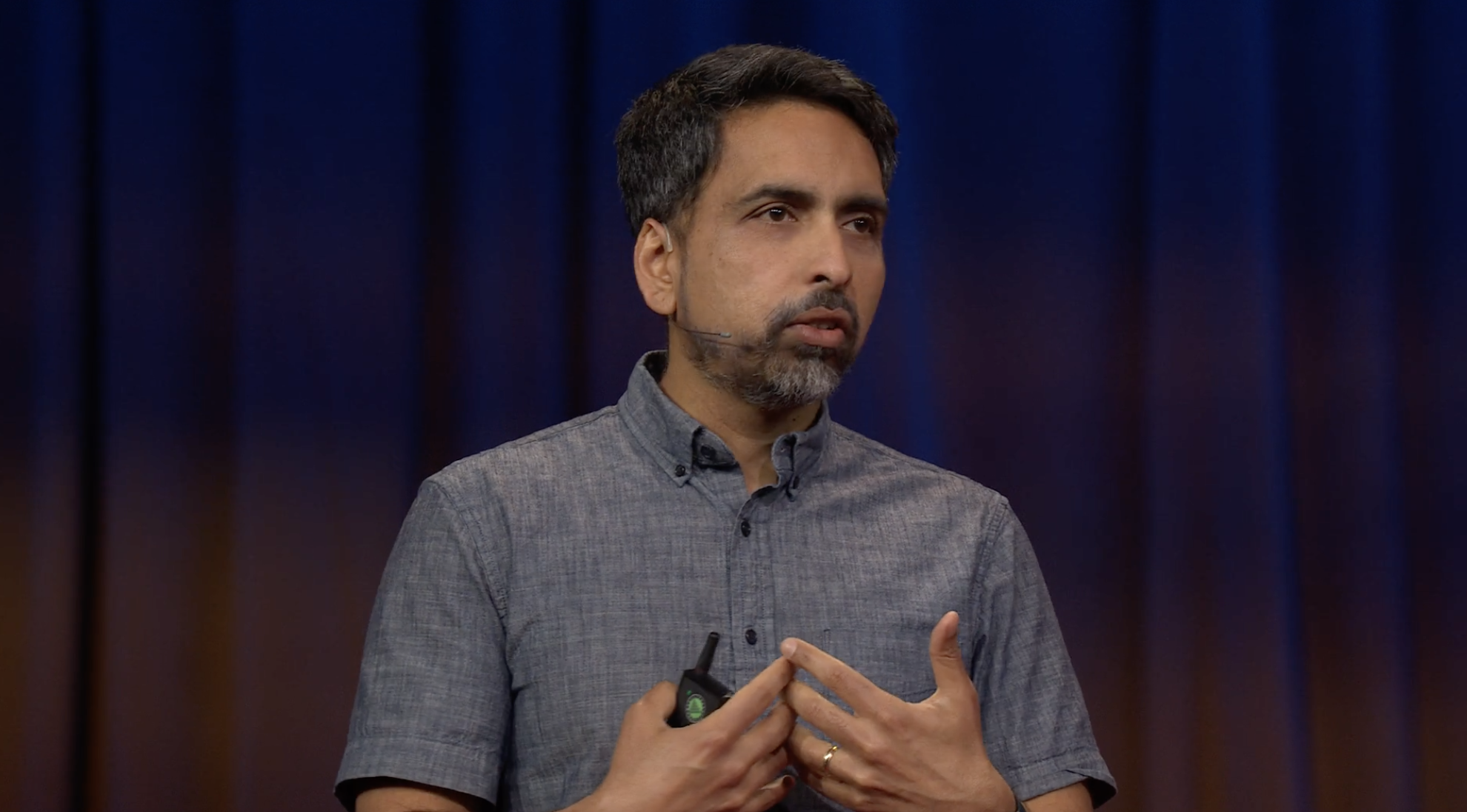This op-ed was originally published in Daily Caller on January 12, 2024.
If you were to jump in a time machine and visit a public school from a century ago, it wouldn’t look much different from what millions of kids still endure today.
Then and now, schools have offered standardized instruction to students grouped merely by age, not ability or interest; a rigid, ‘one-size-fits-all’ approach where every student receives identical education regardless of their unique learning styles; and a top-down teaching model, with educators dispensing knowledge to passive students rigidly seated in rows.
The results are worse than mediocre. Just 26 percent of eighth graders now perform math proficiently. Thirty-three percent of fourth graders read at a proficient level. And even worse, only 13 percent of eighth graders were proficient in American history. This represents an egregious failure of our educational institutions—a glaring sign that traditional reform efforts have been futile in revolutionizing the educational landscape.

Chart: Yuxuan Xie Source: The National Assessment of Educational Progress (NAEP) Created with Datawrapper.
According to a report from the Institute For The Future and Dell Technologies, 85 percent of the jobs that will exist in 2030 haven’t even been invented yet. Today’s students are being educated for a bygone era. This staggering statistic underscores a dire misalignment between current educational methodologies and the future’s dynamic job market. And even paring this number back by half means that tens of millions of kids are being left behind.
Fortunately, emerging technologies like artificial intelligence offer a potential paradigm shift, challenging entrenched educational norms and encouraging us to radically reimagine the system. While many teachers view tools like chatGPT with trepidation, fearing a rise in academic dishonesty, others embrace a more optimistic outlook.
For example, Sal Khan, founder of Khan Academy, thinks that AI presents “the biggest positive transformation that education has ever seen.” It’s not about enabling shortcuts or promoting laziness; rather, as Khan suggests, AI can provide “every student on the planet an artificially intelligent but amazing personal tutor.”
The advantages of such personalized tutoring are clear and significant: it offers tailored guidance, supporting those who struggle while pushing those who excel; provides real-time, individualized feedback; adapts to a child’s specific interests and pace; and dramatically accelerates learning beyond the confines of traditional classroom settings.
The problem? Most families can’t afford tutors, leaving their children in a standardized, ‘factory model’ of education, where individual needs are often overlooked. Gifted children may stagnate, unchallenged by a curriculum targeting the median. Conversely, those who lag behind risk falling even further.
This is precisely where AI can bridge the gap.
Historically, private tutoring was a luxury reserved for the aristocracy, shaping the minds of past geniuses. Now, AI promises to democratize this advantage, making elite educational experiences accessible to a broader spectrum of society.
AI-Powered Education: Redefining Learning with Khanmigo and Beyond
Let’s return to Khan, whose team created Khanmigo—an iterative AI that acts as an educational sidekick, or digital tutor. Any child can now benefit from a massive knowledge base, structured not to give children the answer, but to challenge them with questions and engage them in dialogue as a human tutor would.
In a classroom setting, a child who is confused by a lesson has a disincentive to seek help—he doesn’t want to look stupid in front of his peers. So, by and large, kids keep their hands down, along with their level of learning. AI eliminates this barrier, offering a judgment-free zone for inquiry, where no question is stupid. It’s like having a secret study buddy who is your best friend and will keep your confidence—and who just happens to know a profound deal about nearly everything humans have ever learned.
As these tools evolve, parents will increasingly question the efficacy of conventional schooling. Why should their children endure inefficient, often uninspiring education when AI-powered tutors offer a more effective, personalized learning experience—teaching their children much more in a fraction of the time?
Even before such tools proliferated, homeschooling has exploded as microschools are flourishing across the country. Now with the advent of AI, expect alternatives such as these to become far more attractive as parents opt out of the antiquated system in search for a better education for their children.


